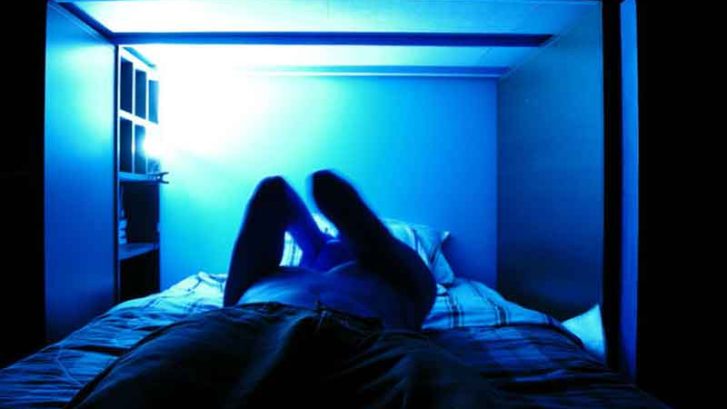What’s So Bad About Blue Light?
All light suppresses the secretion of melatonin, the hormone that regulates your body clock. During the day, this is a desirable effect, because it keeps you awake. At night, you need melatonin to help you drift off to sleep.
In the days before Thomas Edison, we had the sun during the day and fire and the moon to light up the night. But neither of those nighttime sources of illumination cast the brilliance that artificial light does.
When our patients come to us complaining of insomnia, one of the first questions your concierge physicians at MD 2.0 in Jupiter, Florida, will ask is how much screen time they expose themselves to in the evenings. This reason is, study after study, going back as far as 1958, has shown that exposure to artificial light disrupts your circadian rhythm and inhibits sleep, and blue light—the kind emitted by computers, tablets, smartphones, and TV—is the most disruptive of the colors of the light spectrum.
Biologically, humans are wired to react to daylight and darkness (the circadian “clock”). We have spent millennia waking when the sun rises and becoming sleepy when it sets. Until relatively recently, that is. The invention of the electric light allowed us to throw off our biological imperatives and work whenever the demand requires it. And as businesses have realized the profitability in 24-hour productivity from their workers, the demand has increased. We, in turn, have learned to think of night hours as just a continuance of the day’s activities, working and playing long past the time when our bodies are demanding rest.
This ‘round-the-clock culture has been costly from a health perspective, not only for a good night’s sleep, but also with its contribution to a host of other illnesses. Studies have shown that shift work and exposure to bright lights late at night are linked to increases in heart disease, diabetes, obesity, and both breast and prostate cancer.
Blue light is the wavelength most associated with blocking the release of melatonin, the hormone that tells your body to sleep. And this is the light primarily emitted from electronic screens.
Blue light isn’t all bad. You need it during the day to keep you awake, and also to help regulate your circadian rhythm. Some studies have even found that daytime exposure to blue light showed improvements in subjects’ concentration, mood, and daytime alertness, as well as improved sleep. But at night, it becomes a problem.
So what can you do to minimize your exposure to blue light waves? There are numerous ways to accomplish this.
1. Turn them off.
If you can, turn off electronic devices, including television, at least two hours before bedtime. Even indirect exposure to blue light (out of your direct line of vision) can affect the receptors in the eyes that block melatonin production.
2. Turn them down.
Dim the brightness of your electronics manually, or take advantage of the apps that will shift the light automatically from blue to more oranges and reds in concert with sunrise and sunset times.
3. Block them.
A National Institutes of Health Study ten years ago seemed to show that orange-lens glasses will sufficiently block enough blue light to significantly reduce its effect on melatonin production. A Consumer Reports study last year also found a type of orange-tinted glasses cut out almost all the blue light in the spectrum. Two other yellow-tinted lenses tested also cut blue light, but not nearly as significantly as the orange.
Other companies offer products that affix directly to your devices’ screens, claiming to block blue light at its source. Less research has been done on these products, but they might be worth investigating as an alternative remedy.
However you address the issue, realize that blue light emitted from electronic devices can hinder your sleep and thus harm your health, so take steps to minimize it in the evenings. You’ll sleep better and ultimately be healthier.

